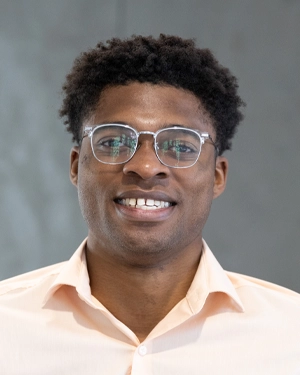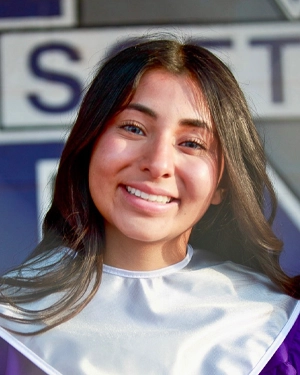
Solomon Gbara - attends the University of New Mexico, pursuing a bachelor's degree in Business Administration.
Two years ago, my world was upended when my mother and four younger siblings faced housing insecurity and were forced to search for a new home with a temporary voucher. I became their primary support, rising at 5 AM daily to work, driving them to distant jobs, and tirelessly searching for properties. This relentless pace, fueled by fear and determination, left me with little time or financial capacity. My summer expenses skyrocketed, and a $1,000 bursar hold prevented my fall enrollment.
Ironically, as my personal financial crisis unfolded, I became Executive Director for the Center for Financial Capability (CFC) at UNM. Despite feeling underqualified, with earnings consumed by expenses, I viewed this role as an urgent opportunity to apply the lessons I desperately needed. My inability to clear the bursar hold threatened my job; UNM leadership required class registration, forcing a confrontation with my struggles. My financial burden made me acutely aware of others' needs. To “pay it forward,” I realized I first had to master the principles I was meant to teach. I couldn’t allow financial precarity to derail my education or my family’s stability again. I swallowed my pride, laid bare my financial despair to my partner, and asked for immediate help.
In my CFC role, I translated lived experience into meaningful action. I trained as a financial educator, providing one-on-one consultations, seeing firsthand how a single budgeting conversation could transform a student's semester. Witnessing the tangible impact of my work to establish CFC’s foundational services and develop tools like the budget calculator was deeply affirming. Knowing that scheduling barriers often impaired students, I implemented a Microsoft Bookings system, allowing instant time slot reservations. This meant students secured help and learned about scholarships days earlier.
In fall 2024, I oversaw surveys measuring student stress before and after our workshops; scores fell 31%, from 5.3 to 3.7 on a 10-point scale. Ninety percent of participants rated our help 4.5/5, a stark contrast to my past anxieties. One student, for instance, arrived with a 2.3 GPA and a $500 late fee. We located an emergency grant application and set up a payment plan that afternoon; by week's end, she was enrolled in the courses she needed to graduate. This outcome embodied my philosophy on impact and personal alignment with helping others. I realized money is a tool: used wisely, it opens doors, and used carelessly it creates barriers.
Reflecting on my journey navigating a personal financial crisis to empowering peers with budgeting, I understand true financial fitness transcends numbers. It’s the confidence gained from knowing someone cares enough to show the ropes. By teaching workshops, designing efficient systems, and guiding students to emergency resources, I truly lived out “people helping people”. Having learned these lessons, I understand the importance of empowering young adults to control their finances. Whatever future opportunities I pursue, I am determined to help others, especially young people with the courage to learn and apply personal finance basics.





